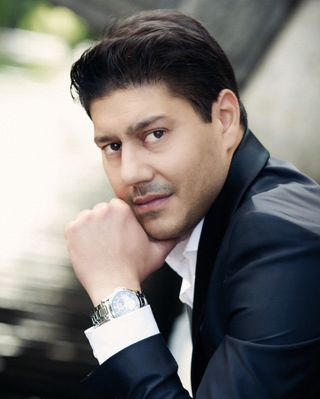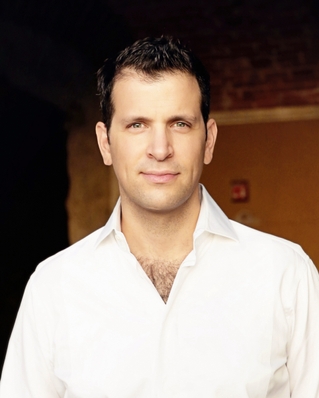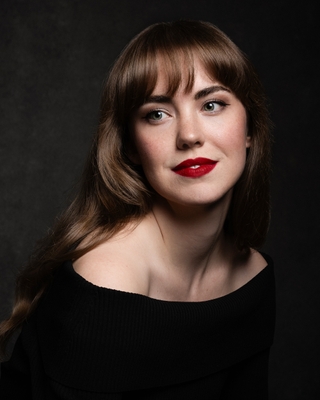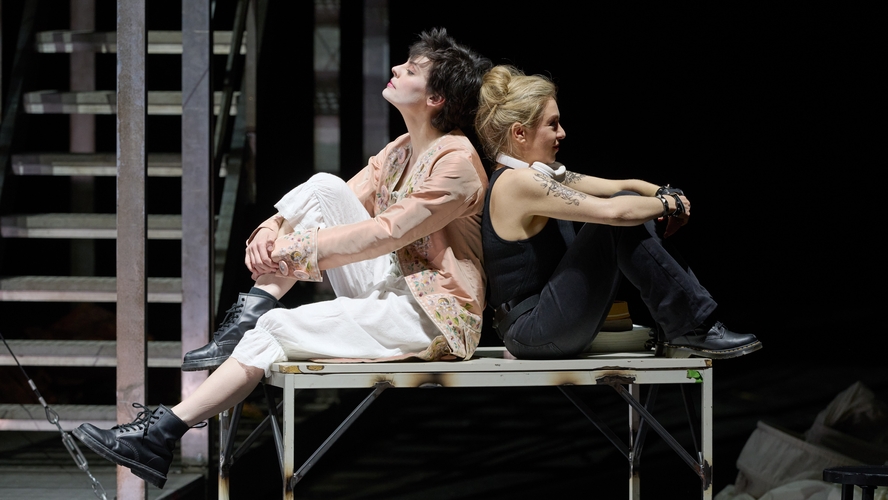Learning for Life?
News |
Time and time again, singers tell us that studying roles is always a way of building personal character. After all, the experiences, insights and wisdom that you hear from opera characters à la Marschallin in Der Rosenkavalier take you further and help you to understand life better and more deeply. On the occasion of our Così fan tutte series in October, we are now putting it to the test - and asking artists whether and what they have personally learned from their Così roles.
Ruzan Mantashyan
Fiordiligi

Fiordiligi was one of the first roles I studied in Frankfurt, and for many years it remained at the center of my repertoire. This role has always been a teacher for me - vocally, it reminded me that discipline and hard work always bear fruit.
Her large range and technical demands allow for no shortcuts; each phrase requires both control and dedication - a balance between precision and freedom.
As a theater character, Fiordiligi taught me that nothing in life can be forced - you can't even force yourself. She resists, she struggles and she vacillates. But it is precisely in her contradictions that her humanity shines through.
Suppressing feelings only intensifies the struggle. True strength comes from allowing vulnerability and honesty. In Fiordiligi's journey, I discovered that authenticity on stage is not about perfection. It's about having the courage to show complexity - to allow fragility and determination to coexist.
Over time, I realized that Fiordiligi mirrors life itself: the constant tension between duty and desire, between what we think we should be and who we really are.
By engaging with her, I learned that artistry comes not only from discipline, but also from compassion - for the character, for the music and for oneself.
Dovolet Nurgeldiyev
Ferrando

To be honest: I didn't learn any special wisdom from Ferrando.
He is a young officer, in love with Dorabella; he believes in these feelings and trusts that everything will work out. Until Don Alfonso seduces him into a wager about the fidelity of his beloved.
If you compare him to a Don Giovanni or a Donna Anna - both incredible personalities, full of different passions, emotions and drives - you have to admit that his characterization is less strong.
And yet: Ferrando is a favorite role for me - not only because of the beautiful music. He demonstrates a special purity, a belief in love.
When he sings the aria Un'aura amorosa, for example, you can sense the thoughts of a man who needs nothing but this love. Devotional and deeply touching!
Luca Pisaroni
Don Alfonso

Don Alfonso is often seen as a puppeteer, a philosopher, a cynic - and in many ways he is.
What I have learned from him is how powerful distance and observation can be. He doesn't get emotionally involved in things - and that gives him clarity. But this kind of distance also comes at a price.
I learned from Alfonso how thin the line is between wisdom and manipulation. His so-called 'lesson' for the young lovers contains some truth - human emotions are unpredictable, and love is not always constant - but his way of proving it shows a lack of compassion.
It reminds me that insight, both on stage and in everyday life, should never be without empathy.
So yes, I believe we can learn from our roles. Alfonso has taught me to be more aware of how we influence others - and to question whether we are using our minds to help or just to be right.
Alma Neuhaus
Dorabella

At first glance, Dorabella may seem like a somewhat silly or superficial character - as the libretto would suggest (it says così fan tutte, not tutti - the feminine form).
She is young, in love and not afraid to show great emotion. She also has a strong curiosity about life, but does not dare to act it out without Fiordiligi giving her permission first.
In the course of the opera, Dorabella undergoes a development towards more self-confidence. At first, she waits to see what her sister does before acting herself. But eventually she takes the lead.
I think this is a journey that many people can relate to. We spend a lot of our early years watching what our peers do or listening to what parents and mentors advise us to do.
But at some point, we have to trust ourselves and make our own decisions. Even when those decisions lead to mistakes - as they certainly do in this opera - we are reminded that in order to grow, sometimes we need to follow our instincts and take a risk instead of always waiting for someone to tell us what to do.
Isabel Signoret
Despina

Despina has taught me to be direct, imaginative and versatile.
She is a woman who knows exactly what she wants and is not afraid to use different ways to achieve it.
Quick-witted and always living in the moment, Despina is an incredibly entertaining character. Her comedy makes her a wonderful role to play, and she helps me as a performer to clear my head and just have fun on stage.
